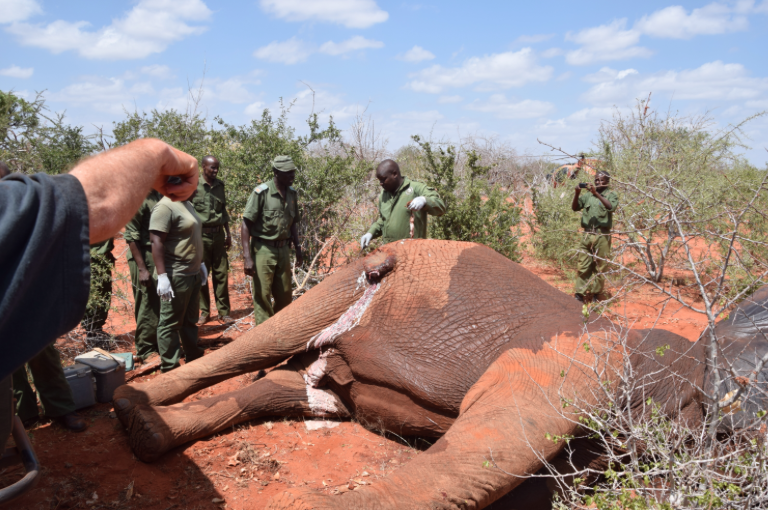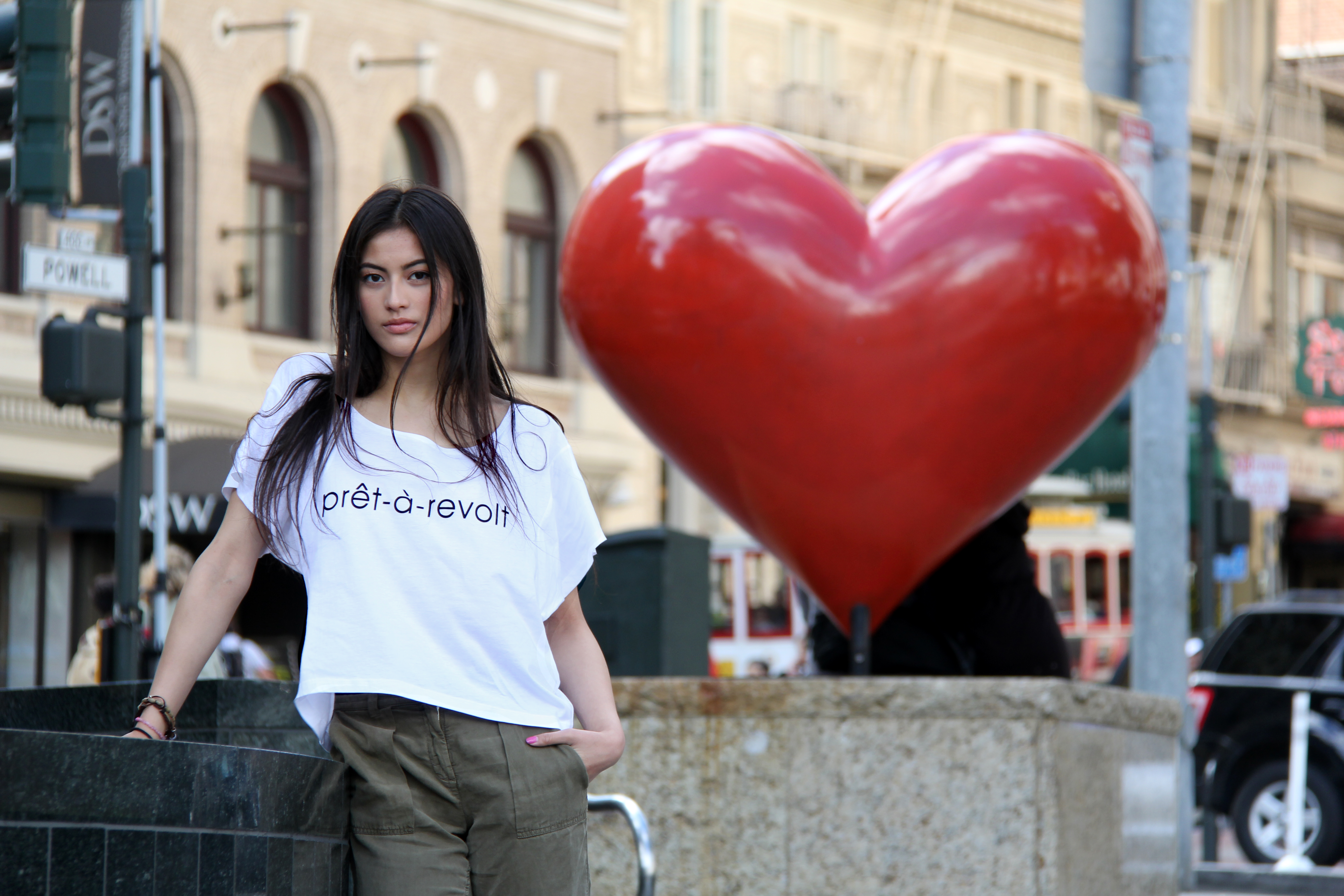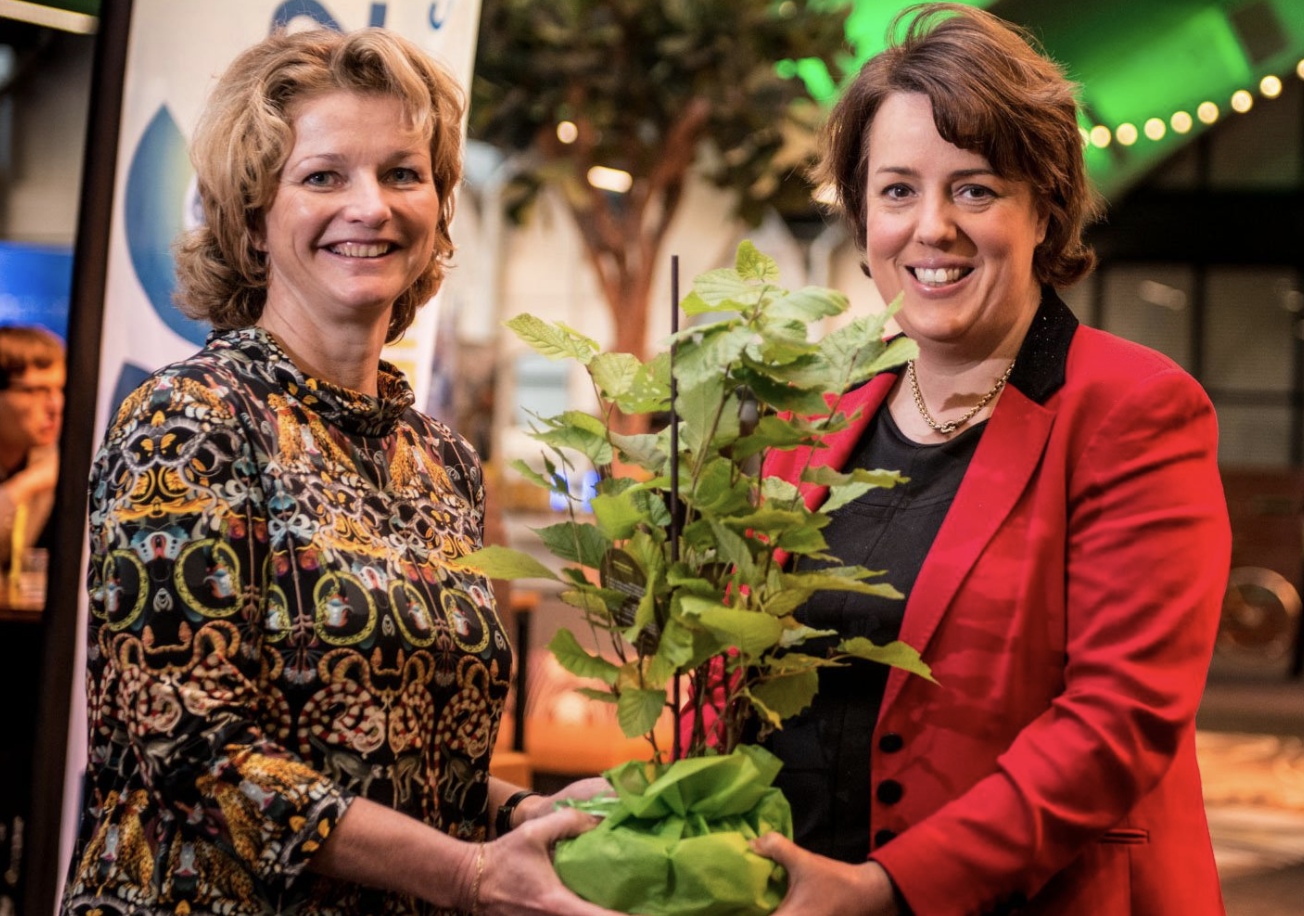Margaret Mschai Rises Above Life’s Challenges and Shares Her Future Aspirations
Margaret Mschai, a mother of two, makes her living by completing various tasks at the Wildlife Works Kasigau Corridor REDD+ eco-clothing factory, and is wholly grateful for it. Her tasks include trimming, folding and packaging the fabric and finished clothes.
“I love what I do mostly because it is an important part in the chain of events that creates unique outfits for export,” she says, adding, “We cannot all be machinists or designers. Someone has to trim the loose threads and fold the clothes so that they are presented neatly for the final consumer.” As Margaret never had the chance to continue her education past primary school, she was therefore unable to accomplish her dream of becoming a nurse. Like countless girls growing up in rural Kenya during the 1970s, Margaret’s parents did not see the need to educate a female child. Upon completion of her primary school education, she was left with the options to either get married or begin working to sustain her everyday needs.
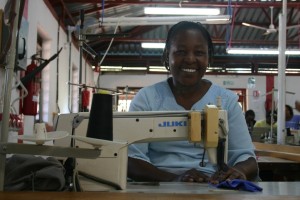
Against her parent’s wishes, Margaret chose to spend a term at the high school she had been admitted to. However, before she could take exams at the end of her term, she was sent back to her parents for money in order to pay her tuition fees. Sadly, she was unable to obtain the funds and was forced to leave school and abandon her hopes of becoming a nurse.
Unable to fulfill her ambitions, Margaret found herself moving from job to job until 2002 when she got news of the clothing factory near Maungu that was hiring.
“I had a strong conviction that this was the long-term opportunity I had been looking for when I heard about the Wildlife Works eco-clothing factory,” Margaret, who had learned a few basics of sewing through the years, recalled.
Unfortunately, the machines at Wildlife Works were electronic, as opposed to the manual ones she had been used to. Instead of the sewing job she had hoped for, Margaret was hired as a factory assistant. Among the first to be employed at Wildlife Works eco-factory, Margaret was unfortunately laid off in 2008 when the factory closed for a temporary three-year period. She describes these years as the hardest period of her life.
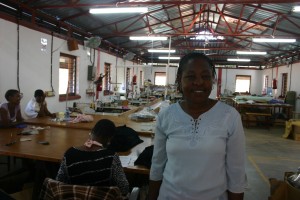
In developed countries, laid off employees are typically able to find a new job and move on with their lives. However, in a country like Kenya, where the unemployment rate has reached a staggering 40%, this is far from the reality. After the closing of the factory, Margaret learned first hand the hardships faced by those who have no job prospects in their area.
“I had a child to feed and no one was willing to employ somebody who had not gone past primary school- not even as a lowly paid house help,” she laments. Luckily for Margaret, her husband was employed elsewhere and so they were able to survive on the little that he earned.
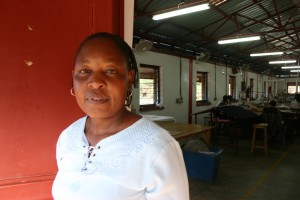
Fortunately, Daniel Munyao, the factory manager at Wildlife Works, re-employed Margaret and others when the factory resumed production in 2010. According to Daniel, Margaret is one of the most hardworking employees at the factory. Even when there are no orders being processed, she spends her time learning how to operate the electronic sewing machines.
“I love sewing and I hope that I will one day get a promotion to become a seamstress,” Margaret says.
With what she earns as an employee of Wildlife Works, Margaret hopes to start her own local fashion shop, selling imported second-hand clothes. Her enthusiasm is apparent as she speaks of her future ambitions.
While Margaret might not have completed her secondary school education, she has undoubtedly lived a life full of valuable lessons. One of these, which she would like to pass on, is to never give up on life, to learn to rise past your challenges and make the best out of every opportunity.
At Wildlife Works, we wish Margaret all the best for her employment, dreams and future aspirations.
* * * * * * * * *
Wildlife Works is the world’s leading REDD+ (Reducing Emissions from Deforestation and Degradation), project development and management company with an effective approach to applying innovative market based solutions to the conservation of biodiversity. REDD+ was originated by the United Nations (UN) to help stop the destruction of the world’s forests.
Over a 15 year history Wildlife Works established a successful model that uses the emerging marketplace for REDD+ Carbon Offsets to protect threatened forests, wildlife, and communities.
The company helps local landowners in the developing world monetize their forest and biodiversity assets whether they are governments, communities, ownership groups, or private individuals.

